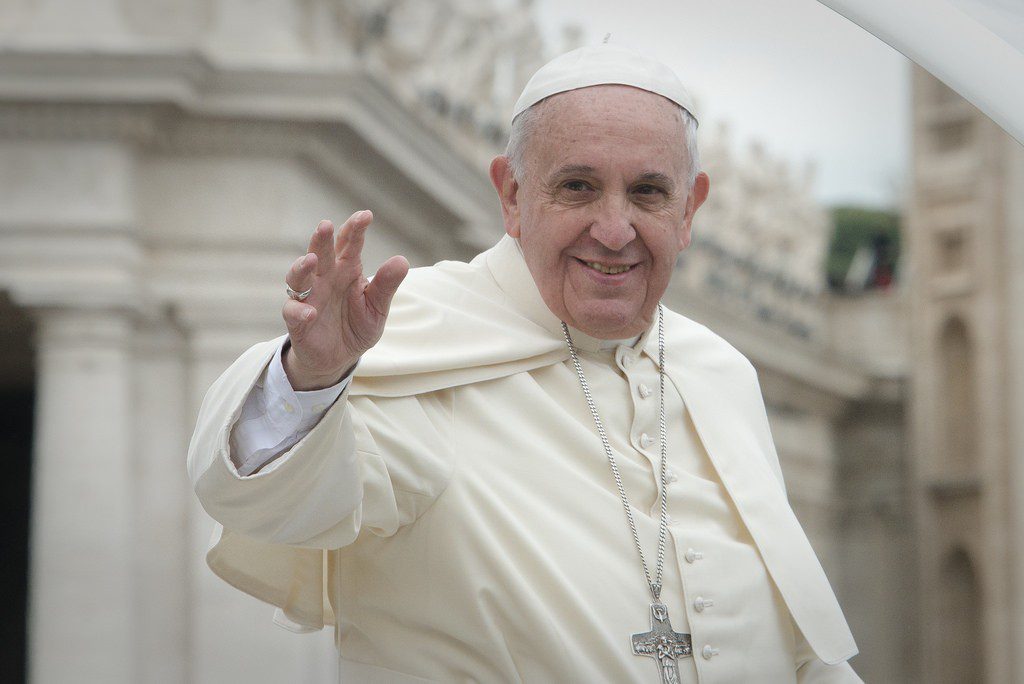
What does it mean to be a part of the (Roman) Catholic Church? On Sundays, we recite a profession of faith via the Nicene Creed or, in special circumstances, the Apostles’ Creed, the latter of which our godparents also profess on our behalf if we’re baptized as infants. But those of us who went through the RCIA program recite a different profession:
I believe and profess all that the holy Catholic Church believes, teaches, and proclaims to be revealed by God.
But Cardinal Cupich appears to operate with a yet different understanding altogether. At least based on his statements yesterday at the Big Bishop’s Meeting he believes that to be Catholic is to be a believer in Pope Francis and to follow his teachings, however he might proclaim Catholic doctrine to have developed from one day to the next.
Am I being too harsh?
Here’s the context:
The American bishops are meeting at the USCCB Fall General Assembly at the moment; yesterday was the second day of the gathering, and they were engaged in a discussion of a letter to be released in advance of the upcoming election, to “help. . . Catholics engage with the American political process,” as explained at Catholic News Agency. But Cupich sought to insert a long paragraph into the text, namely (as linked to at the America magazine), paragraph 101 of Pope Francis’s 2018 apostolic exhortation Gaudete et Exsultate,
The other harmful ideological error is found in those who find suspect the social engagement of others, seeing it as superficial, worldly, secular, materialist, communist or populist. Or they relativize it, as if there are other more important matters, or the only thing that counts is one particular ethical issue or cause that they themselves defend. Our defence of the innocent unborn, for example, needs to be clear, firm and passionate, for at stake is the dignity of a human life, which is always sacred and demands love for each person, regardless of his or her stage of development. Equally sacred, however, are the lives of the poor, those already born, the destitute, the abandoned and the underprivileged, the vulnerable infirm and elderly exposed to covert euthanasia, the victims of human trafficking, new forms of slavery, and every form of rejection. We cannot uphold an ideal of holiness that would ignore injustice in a world where some revel, spend with abandon and live only for the latest consumer goods, even as others look on from afar, living their entire lives in abject poverty.
Which sounds like a dumb move simply from a stylistic point of view, if the letter is actually intended to be something people would read, as opposed to merely with the purpose of making known an official point of view.
As CNA recounts:
The cardinal suggested the insertion of a long paragraph into the text which would contextualize the Church’s position on life issues, and especially the teaching of Pope Francis.
The committee considering the amendments, led by the USCCB president-elect Archbishop Jose Gomez of Los Angeles, agreed to include an abbreviated version of Cupich’s paragraph, including language insisting that the “firm and passionate” defense of the unborn should be matched with support for the “equally sacred” lives of the poor, inform, elderly, and marginalized.
Cupich argued that his proposed wording was necessary, even if it was longer, in order properly to represent the full concerns of the pope.
Whereupon Bishop Robert McElroy jumped in to object to the very notion that the letter should say that abortion is the ““preeminent priority because it directly attacks life itself.”
McElroy told the conference this language was “discordant with the pope’s teaching, if not inconsistent,” and implied that a failure to accept Cupich’s proposed language was tantamount to a breach with the Holy Father’s magisterium.
“It is not Catholic teaching that abortion is the preeminent issue that we face as a world in Catholic social teaching. It is not.”
America contains another crucial quote from Cupich:
The cardinal referenced a speech given to U.S. bishops on Nov. 11 by the papal nuncio to the United States, Archbishop Christophe Pierre, in which he urged them to consider “practically” how they have “received the magisterium of Pope Francis.”
“This is a magisterial teaching of Pope Francis,” Cardinal Cupich said. “And I think we can all benefit from it as we speak to our people about the issues.”
Now, as a reminder, in Illinois, not only is abortion legal with no meaningful limitations but as of earlier this year, all insurance plans must cover abortion with the same level of cost-share as they do maternity care. At the time, Cupich issued a brief statement (which did not even comment on the new insurance-coverage requirement), then went about his day. (The Archdiocese self-insures its medical plans, which means that they are subject to federal, not state, regulations; does this mean that they shrug this off and say, “oh, well, something for someone else to care about”?)
And, to state the obvious, there is a clear difference between abortion and other issues such as the welfare of migrants or the poor. Perhaps Cupich is not aware that it is against the law to deliberately kill a migrant or a poor person? That, indeed, should one wish to do so, we cannot file a claim with our insurance company? Americans who wish to restrict immigration are calling for deportation of those without legal residency rights, not for their execution.
But even aside the specific issue itself, the approach that Cupich and McElroy insisted upon, that what matters is being in alignment with the “teaching of Pope Francis” even on matters such as degree of emphasis when it comes to Catholics and politics (where Cupich himself likewise has his own personal priorities), is not authentically Catholic at all, especially when it turns into infighting about personal loyalty to the man himself. Thought experiment: try to substitute “Benedict” for “Francis.” It doesn’t work, does it?
So, in the immortal words of the kids these days, “OK, Boomer.”









